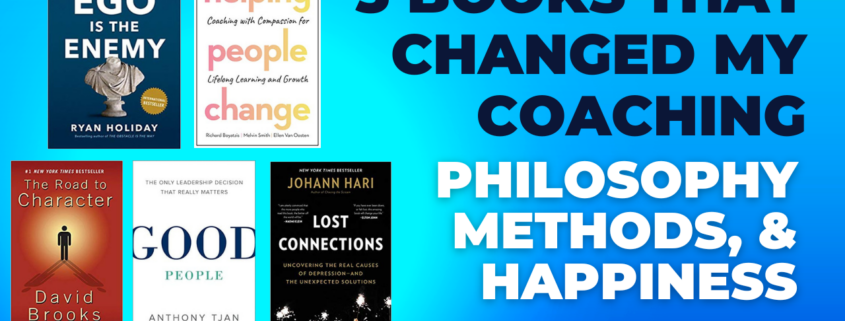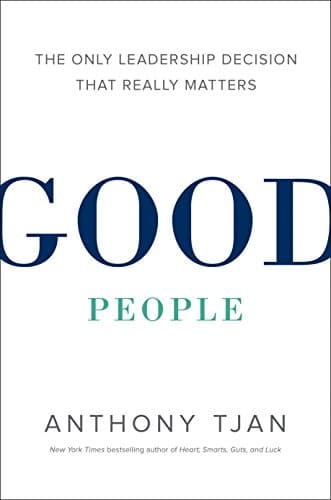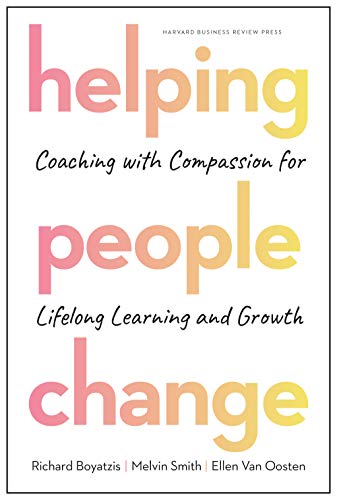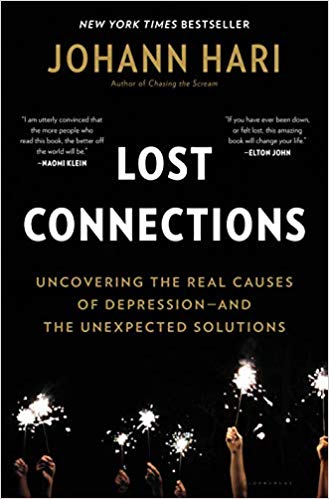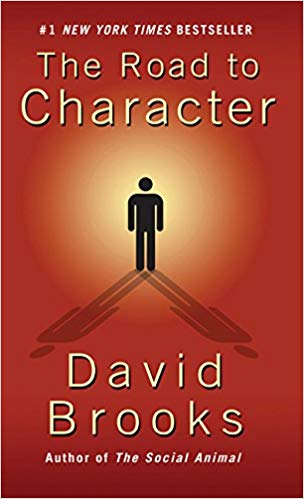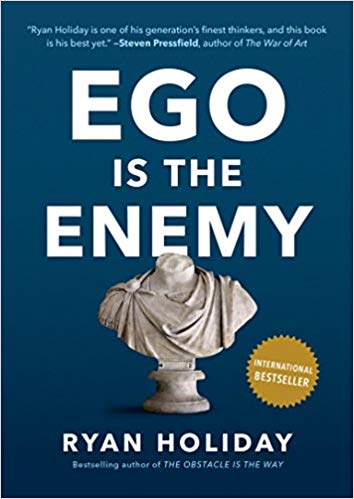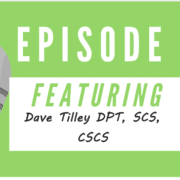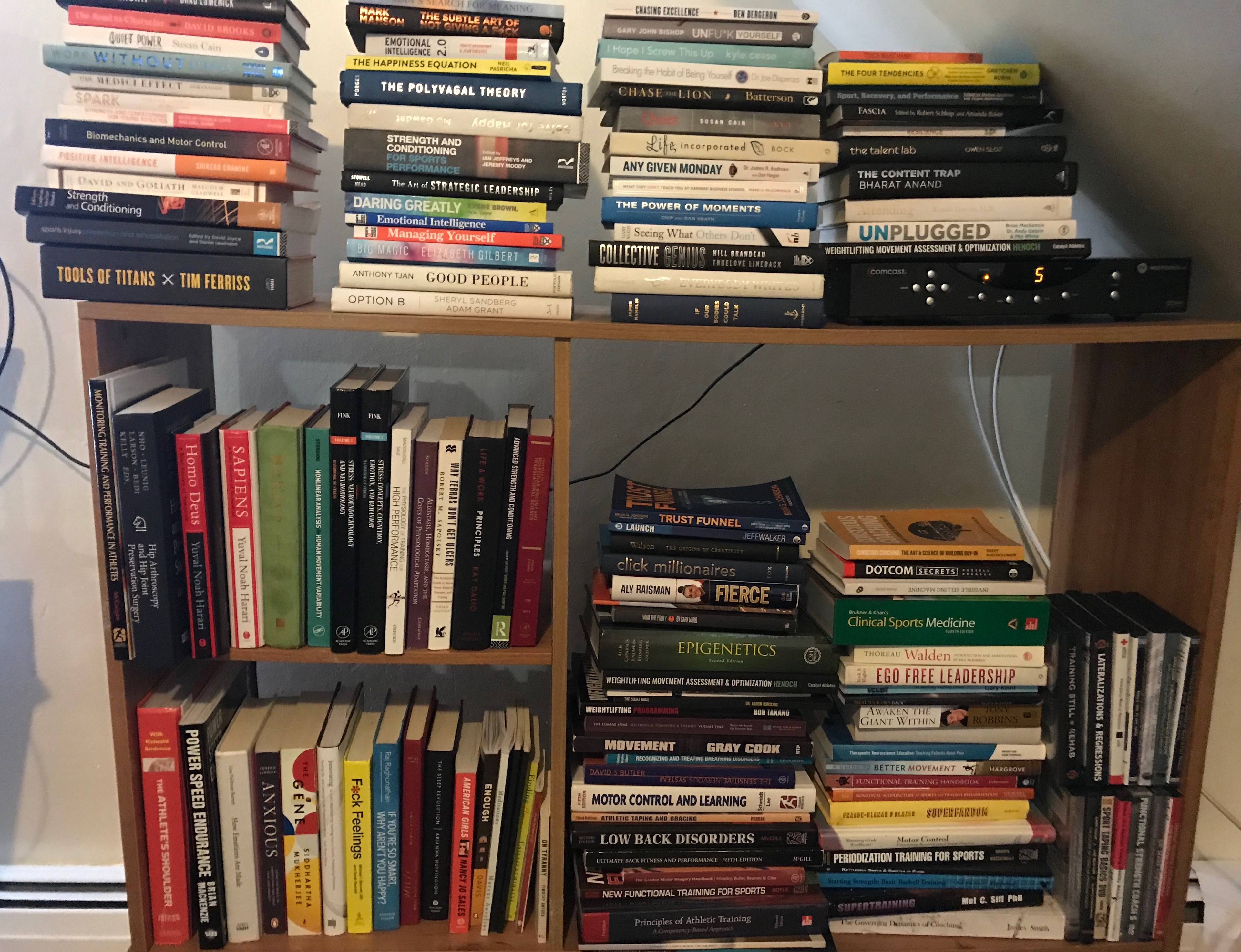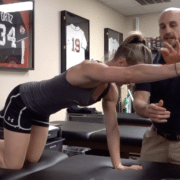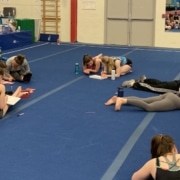5 Must Read Books for Gymnastics Coaches Looking to Improve Their Happiness and Gym Culture
I’ve been obsessed with personal development, leadership, and business books all the years I’ve been coaching. I always seem to find really good examples of things to use with gymnasts, and also during my medical work. Oftentimes, I come across a book that hits so hard or delivers an eye-opening message, and it forever changes my perspective on working in the sport.
There are so many questions coming my way lately about gymnastics coaches wanting to be happier at work, have more motivated gymnasts, improve their team’s performance, and change their culture from ‘old school’ mentalities. They ask me what books I read, podcasts I listen to, and who I try to learn from.
Today I wanted to share with people 5 books that have substantially changed my view on gymnastics, coaching, medical care, and my own personal life. I hope that they give you a ton of value and you get the same mindset shift I did. Click the links on the titles to grab them on Amazon!
Before we dive in, if you are wanting to learn a ton about being happier working in gymnastics, creating incredible cultures, and helping gymnasts safely reach their goals while enjoying the sport, you are definitely going to want to check out the 2023 SHIFT Symposium where we dig into all of this!
We’ll have 3 days of 30 gymnastics lectures from some of the world’s leading experts, and we will dig into the best ways to really develop high-performing cultures while being in love with working in the sport. You won’t want to miss it.
But for now, let’s dive in!
Table of Contents
5. Good People
The first book I think is a must-read is Good People by Anthony Tjan. It is an incredible book that outlines the characteristics, habits, and values that some of the world’s most positive and influential people have. The book is a powerful reminder that in order to be a successful leader, it is essential to have a strong sense of empathy, integrity, and a deep understanding of human nature.
One of the key themes of the book is the importance of empathy in leadership. Tjan discusses how leaders who are able to understand and connect with others on a deep level are more effective at inspiring and motivating their teams. He also highlights how empathy can help leaders to build trust and foster a positive culture within their organizations.
For example, Tjan discusses how Howard Schultz, the former CEO of Starbucks, was able to build a successful company by creating an environment where employees felt valued, heard, and respected. I read this book when SHIFT was starting to grow, and I started managing other people. I was also starting to consult with some very well-known and ‘high up’ people from NCAA Gymnastics Programs, National Governing Bodies, and Olympic Level programs. Leading with empathy really changes how I communicated with them.
Another example from the book is how integrity is a fundamental characteristic of good leaders. Tjan argues that leaders who are true to their values and principles are more likely to inspire and motivate others. He also highlights how integrity can help leaders to build trust and create a positive culture within their organizations. For instance, Tjan discusses how Paul Polman, the former CEO of Unilever, built a successful company by being transparent and honest in all his decision-making.This is massive if you are trying to lead gymnasts into high-pressure and high-risk situations gymnastics produces.
While more on the business side of things, I think there is a ton of value that can be drawn from this read.
4. – Helping People Change
On the more coaching-specific books, I think the book Helping People Change by Ellen Van Oosten and her co-authors is a must-read book for coaches looking to work with young athletes who might need to change their behavior.
We see this all the time in gymnastics whether it’s about motivation, lacking work ethic, behavior issues, and so on. The book provides a comprehensive approach to coaching that emphasizes the importance of empathy, compassion, and understanding in helping athletes change their behavior instead of just saying “stop doing X”
One of the key themes of the book is the importance of understanding what athletes want out of their sport and their goals. The authors argue that by understanding what athletes want and what their goals are, and then outlining how the big picture goals require specific behaviors they might need to do to get there, coaches can help them to see the value in changing their behavior.
For example, say a gymnast isn’t putting effort into drills or conditioning. Instead of just saying “do your drills” or “don’t cheat on conditioning” you instead ask a gymnast what they want out of training. They say to flip a Yurchenko and move to level 8. You then can explain to them how the ability to safely flip a Yurchenko requires a strong shoulder blog, a powerful run, and a good whip back handspring off the board. You then explain that you have created drills for those specific things and that if they want to reach their goal they have to work these drills to a high quality.
Moving one step further, you explain that as boring and hard as strength can be, the exercises in the strength program are what ultimately will allow them to get better at the drills, the Yurchenko block, and the flipping of the vault that will help them get to Level 8.
One of the most powerful aspects of Helping People Change is the way it uses the latest research in neuroscience to support its approach. The authors use fMRI studies to show how empathy and compassion activate different regions and systems of the brain. This research supports the idea that an empathetic approach is more effective in helping people change their behavior, as it activates the parasympathetic nervous system. This is opposed to a more direct, and ‘attacking’ tone that activates the sympathetic nervous system and reduces the chance that someone will hear what you have to say and change. For coaches who might be a little frustrated with gymnasts, they coach like I was, this is a good one.
3. – Lost Connections
Lost Connections by Johann Hari was an eye-opening book for me, as it explores the possibly real reasons behind mental health disorders like depression, anxiety, and loneliness.
The book challenges the conventional wisdom that these disorders are caused solely by chemical imbalances in the brain that can be treated with drugs and instead argues that a major contributing factor is people lacking social connection, meaning, and purpose in their lives.
At the time in my life, I found this, I was just starting to come to terms with the fact that I definitely was suffering from depression, burnout, and slices of social anxiety. This book really connected the dots for me that not only is not just about brain chemicals but that there are nondrug-based solutions that can happen with lifestyle change and habit building.
One of the key themes of the book is how social connections are critical to our mental well-being. Hari discusses how a lack of social connections can lead to feelings of loneliness and isolation, which in turn can contribute to the development of mental health disorders. He also highlights how social connections are vital to our sense of self-worth and can provide a sense of purpose in life. I quickly realized that while I did have work friends and connections, I was spending way too much time each week (100+ hours between 3 jobs) and not enough time with friends and family I love.
Another example from the book is how a lack of meaning and purpose in life can contribute to mental health disorders. Hari discusses how many people today feel a sense of emptiness and lack of fulfillment in their lives, which can lead to feelings of depression and anxiety. He also highlights how having a sense of purpose and meaning in life is essential for our mental well-being. This serves as a powerful reminder that finding purpose and meaning in our lives is crucial to our mental well-being.
For me, I noticed that I was mainly working and ‘staying busy’ for the wrong reasons. I cared more about what people thought about me, money, and if I’m being transparent impressing women I thought were cute and wanted to date. Just keeping it real. This book changed my thought process completely and made me start changing my sense of self-esteem away from external validation sources.
One of the most powerful aspects of Lost Connections is that it not only highlights the role of social connections, meaning, and purpose in mental health disorders but also provides practical advice on how to overcome them. Hari offers a number of strategies for addressing these issues, such as connecting with others, finding meaning and purpose in your life, and engaging in meaningful work. By following these strategies, we can learn to overcome our mental health disorders and ultimately lead a more fulfilling life. 10/10 recommend.
2. – The Road To Character
The Road To Character by David Brooks is another incredible book that explores the importance of developing virtue and character in our lives. The book is a powerful reminder that in order to lead a truly fulfilling life, we must study the virtues of people who have done great things in history and actively work to cultivate those virtues within ourselves. I read this book when I was actively working through the changes that I wanted to make as a gymnastics coach, and more globally just as a human.
One of the key themes of the book is the importance of studying the lives of great people in order to understand what virtues they possessed and how they developed them. Brooks discusses a number of historical figures, such as George Washington and Dwight Eisenhower, who were able to overcome their vices and achieve great things because of their strong character. By studying the lives of these individuals, I gained a deeper understanding of what virtues are necessary for success and how to develop them within ourselves.
Another example from the book is how sacrifice is an important aspect of developing a strong moral compass and architecture for values driving your daily choices. Brooks discusses how we must be willing to make sacrifices in our daily lives in order to cultivate virtues such as discipline, humility, and self-control.
For instance, Brooks highlights how Dwight Eisenhower’s military career had to sacrifice his personal life and how he had to make hard choices in order to be successful. This serves as a powerful reminder that if we want to develop strong character, we must be willing to make sacrifices in our daily lives. For me, it was about sacrificing unhealthy based coping mechanisms like social media usage, drinking/partying, and unhealthy exercise habits and go to therapy in order to improve my mental health.
One of the most powerful aspects of The Road To Character is that it not only highlights the importance of virtue but also provides practical advice on how to develop it. Brooks offers a number of strategies for cultivating virtue, such as focusing on the present moment and actively working to overcome our vices. By following these strategies, we can learn to overcome our vices and ultimately lead a more fulfilling life. For those who might have some lifestyle habits or unhealthy coping mechanisms they are not proud of, this is a must-read.
1. – Ego is The Enemy
Ego Is The Enemy by Ryan Holiday is a fantastic book that explores the insidious nature of ego and how it can cloud our judgment and lead us down a dark path in life. The book is a powerful reminder that ego is not only harmful to ourselves but also to those around us. I was gifted this book at a time when I had a VERY large ego, which in reality was my insecurity manifesting, and it was toxic to my life and our gym’s culture. This book was a slap in the face wake-up call, honestly.
One of the key themes of the book is that ego can lead us to make decisions that are not in our best interest. For example, Holiday discusses how the famous Roman general Julius Caesar was brought down by his own ego. Caesar was so focused on his own ambition and desire for power that he ultimately lost sight of what was truly important and was ultimately defeated.
This serves as a powerful reminder that our ego can cloud our judgment and lead us to make decisions that are not in our best interest. This resonated deeply with me as I was a few years into starting SHIFT and my new job at Champion, and it definitely made me high on my own supply. I became obsessed with getting people’s approval, and it clouded the choices I was making in coaching and in my daily life.
Another example from the book is how ego can lead to a lack of humility and the inability to learn from others. In the book, Holiday discusses how the famous artist Pablo Picasso was so consumed by his own ego that he was unable to learn from others, and ultimately, his art suffered as a result. This serves as a powerful reminder that if we are too focused on our own ego, we will miss out on valuable opportunities to learn and grow. Again, hit hard for me. My ego was blinding me from hearing other people’s input, both coaching co-workers and the gymnasts I was coaching. Let to a very, very bad situation.
One of the most powerful aspects of Ego Is The Enemy is that it not only highlights the negative effects of the ego but also provides practical advice on how to overcome it. Holiday offers a number of strategies for managing our ego, such as focusing on the work rather than ourselves and actively seeking out feedback from others. By following these strategies, we can learn to keep our ego in check and ultimately live a more fulfilling life. I HIGHLY recommend people read it and spend some time journaling on the main points.
Honorable Mentions – Gymnastics Culture/Scandal Documentation Books
I felt that I could not write this blog post without including all of these books. While for some, it might be very triggering to read and they might need to not read them or read them with the help of a professional therapist, for me I had to push myself to get through them. Although difficult, they were a frank, stark, direct look at the reality of some parts of gymnastics in the last 20 years.
What Is A Girl Worth? by Rachael Denhollander, The Girls by Abigail Pesta, Abused by Marisa Kwiatkowski, and Start By Believing Barr & Murphy are 4 books that I feel are essential for anyone in gymnastics to read. These books provide a chilling and eye-opening look at the reality of the cultural problems that have existed in some parts of the sport in the last 20 years. They expose the abuse, neglect, and mistreatment that many gymnasts have been subjected to, and the failure of those in power to protect them.
While I do not want to dive into specific examples within these books, in an effort to make sure readers are not uncomfortable, I truly to recommend people look into them. I feel as though we have to fully and directly look at the problems in gymnastics if we have any hope of fixing them. They are also incredible accounts of bravery and courage in the face of some horrific challenges.
Conclusion
So, I hope that those sets of books gave you some interesting ones to checkout. Again, all of the books in the blog above fundamentally changed how I approach my personal life, coaching, treating gymnasts for medical care, and my consulting work around the world within the sport.
Remember, if this topic is interesting to you and you’re working in gymnastics, be sure to sign up for the 2023 SHIFT Symposium and get tons of great lectures from experts around the world on this!

